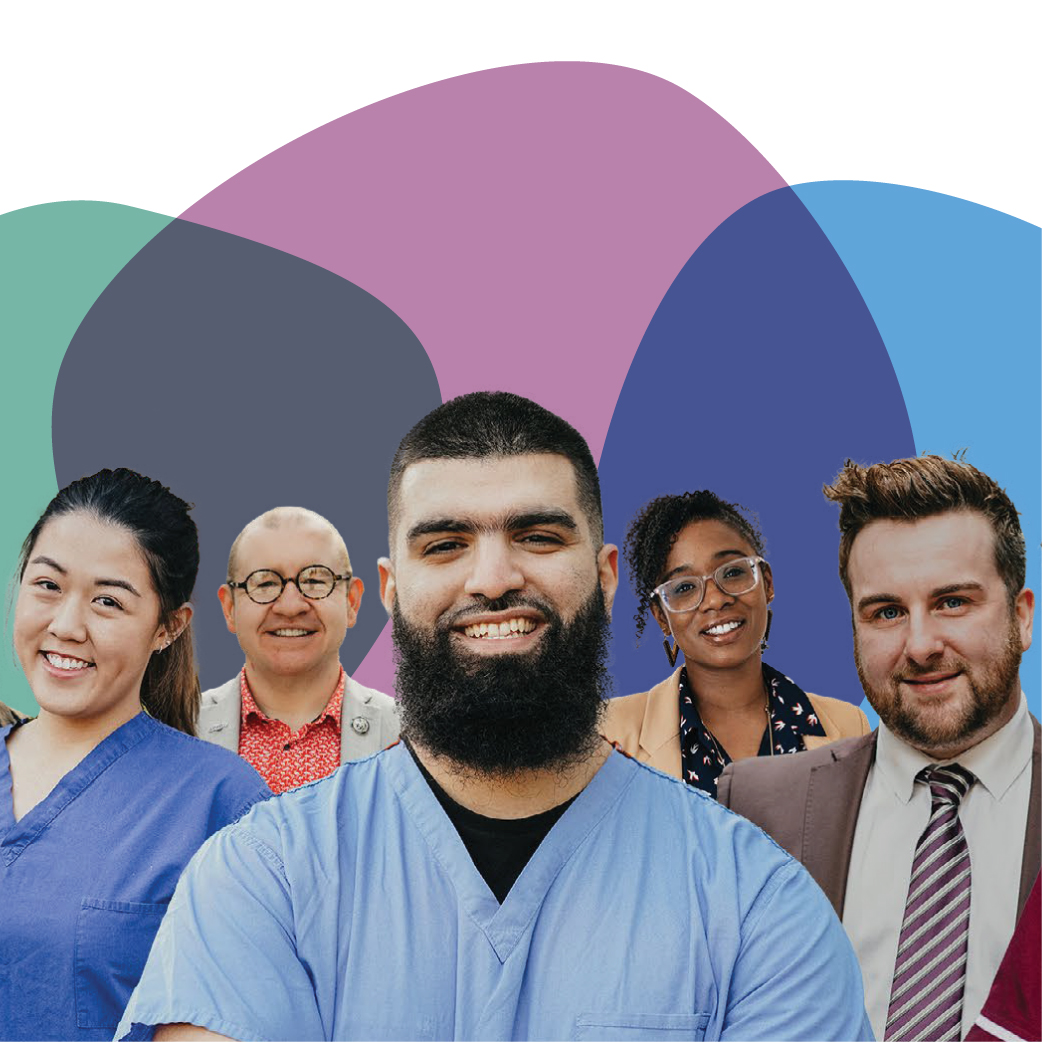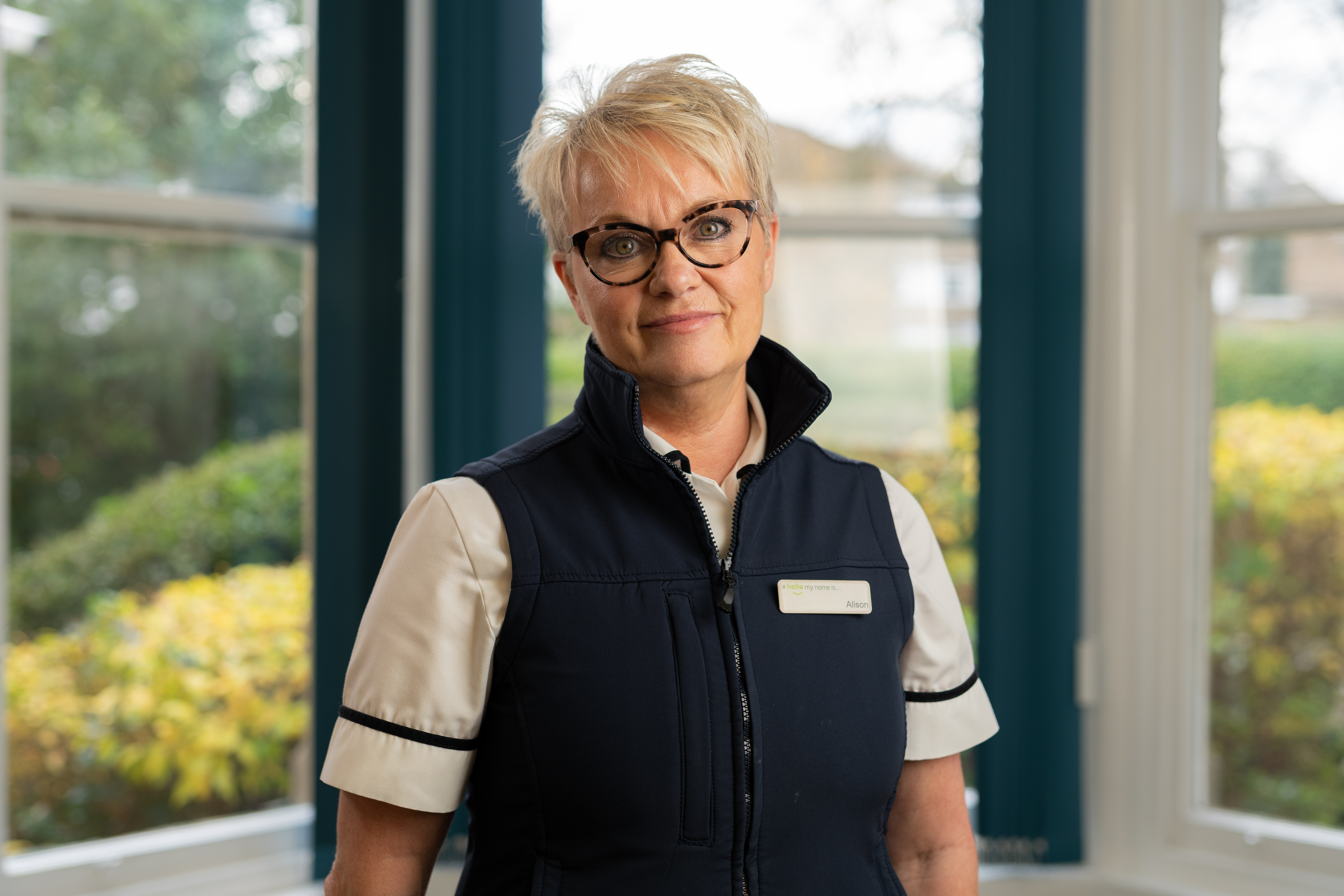Support Workers
Education and Career Framework: Showcasing opportunities and career development
Return to ECF hub page

Education and Career Framework: Showcasing opportunities and career development
Return to ECF hub page

Support Worker Case Study
Clinical support workers, senior clinical support workers, mammography associates and assistant practitioners play key roles in the provision of patient-centred imaging and radiotherapy services alongside Radiographers and associated professionals. They come into diagnostic imaging or radiotherapy services from diverse backgrounds.
Read our case study below.
 Assistant Practitioner, Circle Health Group at the Duchy Hospital
Assistant Practitioner, Circle Health Group at the Duchy Hospital
I’m an Assistant Practitioner working in MRI for the Circle Health Group at the Duchy Hospital, Harrogate. I also work at Harrogate District Hospital (HDFT), as a member of their Bank Staff within the general x-ray department.
Within my role at the Duchy Hospital as an Assistant Practitioner in MRI, I work alongside a Senior Radiographer who I have known and worked with for many years. The service provided is relatively new and involves predominantly musculo-skeletal (MSK) examinations, which is my background. The use of contrast mediums is also being introduced, which is enabling me to maintain my IV cannulation skills.
Undertaking bank shifts in A&E general x-ray at Harrogate District Hospital helps to maintain my skills in this area of practice; orthopaedics will always be a favourite pastime.
I have worked extremely hard to develop my knowledge and skills to enable me to extend my scope of practice so that I can now work in three modalities. I completed my Certificate of Higher Education with Distinction in General Radiography at Bradford University in 2012/13. One could describe my training as loosely based on the DCR format in that I worked four days clinically and one day at university each week for duration of the course. I was supported by a clinical supervisor (Senior Radiographer) at my place of work who facilitated the general radiography practical training and formal assessments. A wide variety of assessment methods were used as part of my course. This included the completion of a portfolio, presentations, case studies, written assessments, and examinations. My modules encompassed topics like patient care, human biology for clinical practice, radiation physics, IR(ME)R regulations etc.The course helped me to gain the necessary knowledge and skills to work as an Assistant Practitioner.
I then extended my scope of practice whilst working at Alliance Medical to include MRI and CT through formal work-based practical and written assessments. I also completed IV cannulation training at Alliance Medical (2018) to help gain further skills applicable to my role.
While working within my current and previous roles I have continued to maintain my personal record of continuing professional development (CPD). This, along with my formal education and training, enabled me to apply for College of Radiographers Assistant Practitioner Accreditation. This was awarded in 2020 for my Assistant Practitioner role in all three modalities. Assistant Practitioner Accreditation is an outward way of showing that I have met the College of Radiographers standards in relation to my role, with my name being held on the College’s Public Voluntary Register for Assistant Practitioners (PVRAP). I know that to be able to remain accredited and remain on the PVRAP I will need to maintain my knowledge and skills and keep up to date with any developments in relation to my role and scope of practice.
Some assistant practitioners may go on to complete a BSc (Hons) degree in radiography, while others may choose not to. I have considered this myself, but I am currently enjoying my role within the various modalities.
My colleagues at CARE UK were hugely supportive throughout my training and my supervisor was subsequently awarded “Clinical Supervisor of the Year 2013” from Bradford University. I was supported by a mentor at Alliance Medical (MRI/CT Senior Radiographer) to extend my scope of practice initially into MRI in 2017 and CT in 2020.
Having the opportunity to extend my scope of practice to include three modalities. I love working with all the different technology involved.
I often work alongside another Radiographer in a very small team. That means I get to spend a lot of time one to one with patients which is really rewarding. I also feel a very valued member of the imaging team.
I was also proud to be able to support people during the Covid-19 pandemic working at a Nightingale Hospital in the CT department.
Having a dedicated clinical supervisor in the workplace is key, as well as time spent “hands-on” in the relevant department. Both of these things enabled me to feel supported while gaining confidence and competence within the role.